What Can I Use Instead Of Water Bottles For Guinea Pigs?
What can you use instead of a water bottle for guinea pigs? Let’s look at some of the alternatives and why they might be better choices.
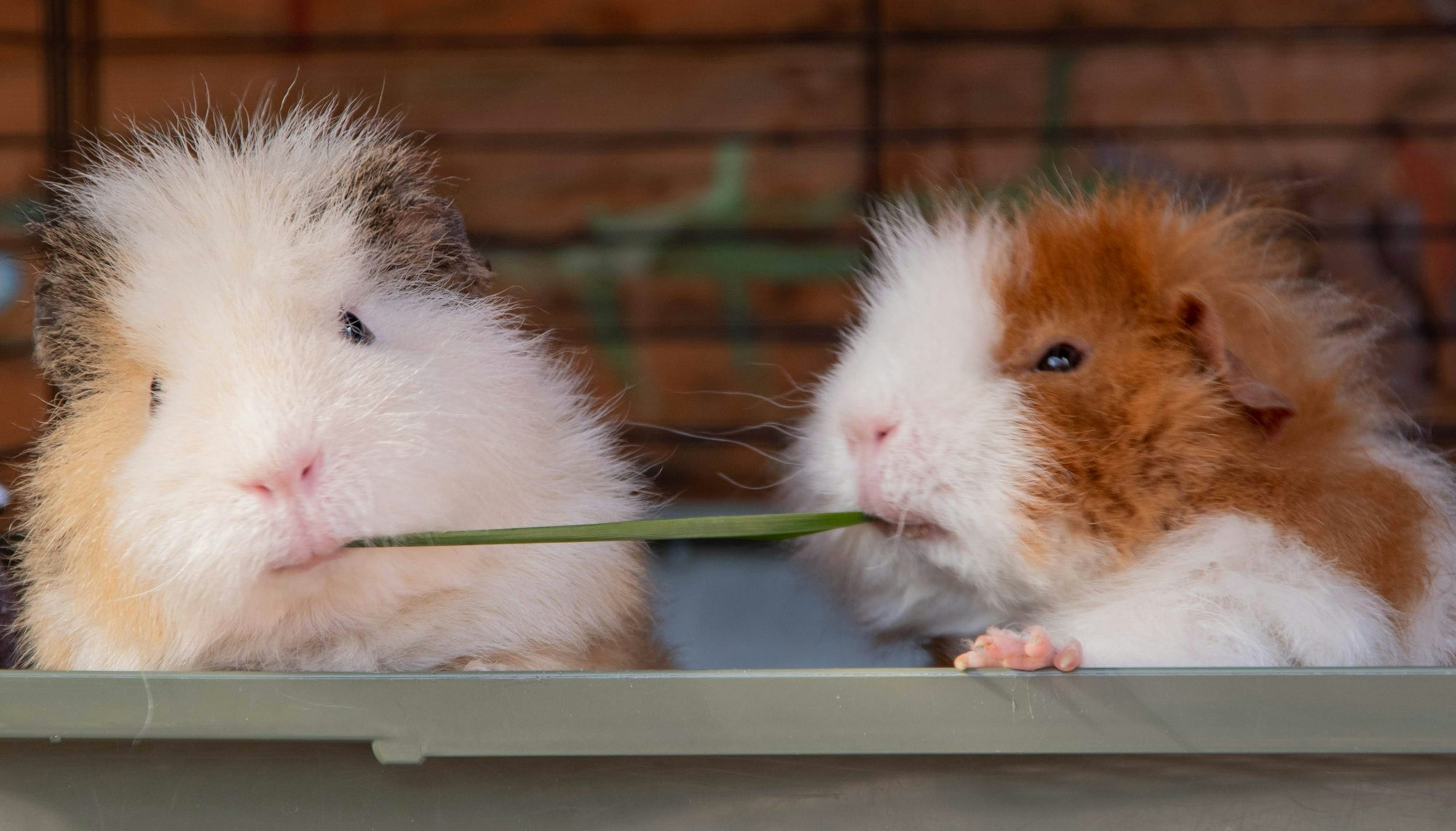
Guinea pigs are delightful small pets that require proper hydration to stay healthy. While water bottles for piggies and other small animals like ferrets, and hamsters are commonly used, there are alternative methods to ensure your furry friends get the fresh water they need. This article explores various options, providing practical examples and insights to help you make an informed decision.
Key Takeaways:
- Water bowls and dispensers can be effective alternatives to traditional water bottles for guinea pigs.
- Regular maintenance and monitoring are crucial to ensure your guinea pigs have access to clean, fresh water.
- Understanding your guinea pig's preferences can help you choose the best hydration method.
Why Consider Alternatives?
Considering alternatives to traditional water bottles for guinea pigs is essential for several reasons. Firstly, some piggies may not take to drinking from water bottles, leading to dehydration and health issues. Secondly, water bottles can be prone to leaks, which can create a mess in the cage and waste water. Finally, some guinea pig owners may find that traditional water bottles do not provide enough water for their pets, necessitating frequent refills and maintenance. By exploring alternative water systems, guinea pig owners can ensure their pets stay hydrated and healthy, while also reducing the hassle of constant upkeep.
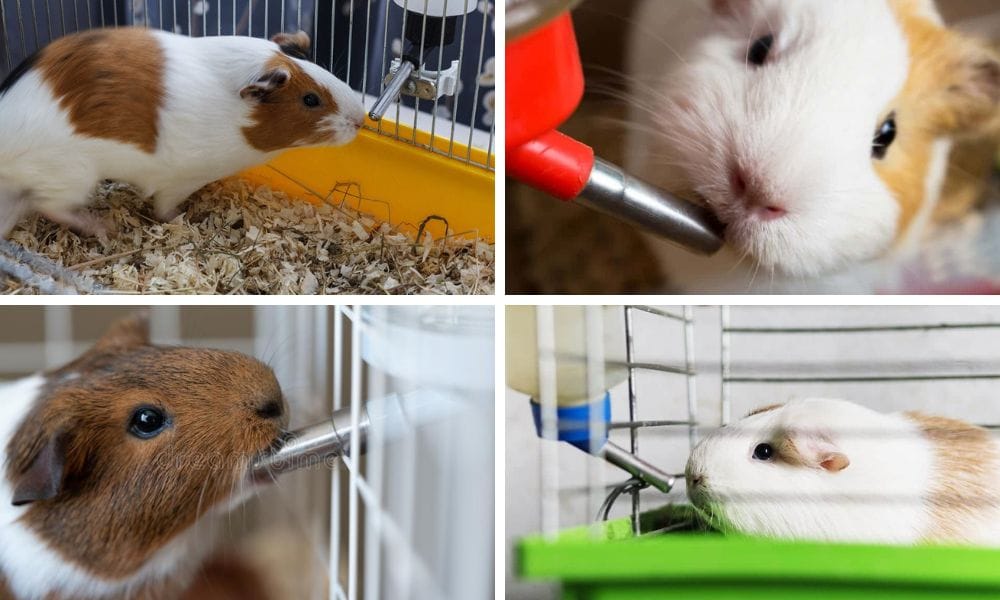
Water Bowls: A Simple Alternative
Water bowls are a straightforward alternative to water bottles for guinea pigs. They are easy to fill and clean, making them a convenient option for pet owners. Unlike water bottles, which can sometimes leak or get stuck, water bowls provide a consistent water source. Water bowls are also suitable for other small animals like hamsters, providing them with a reliable and accessible water supply.
However, it’s essential to choose the right type of bowl. Heavy ceramic or stainless steel bowls are ideal because they are less likely to tip over. Additionally, placing the bowl in a stable position within the cage can prevent spills and keep the water clean. Regularly checking and refilling the bowl ensures your guinea pigs always have access to fresh water.
Water Dispensers: A Modern Solution
Water dispensers designed for small animals can be an excellent alternative to traditional water bottles. These dispensers often come with a spout or nozzle that allows piggies to drink without the risk of contamination. Some models even feature a metal ball mechanism to control the water flow, similar to a guinea pig water bottle.
When choosing a water dispenser, look for one that is easy to clean and refill. A dispenser with a transparent reservoir can help you monitor the water level and ensure it is always full. Additionally, consider the dispenser’s placement in the cage to make it easily accessible for your guinea pigs. It is also important to consider the price, as some customers have expressed dissatisfaction with the value for money, noting that certain dispensers do not meet their expectations for the cost.
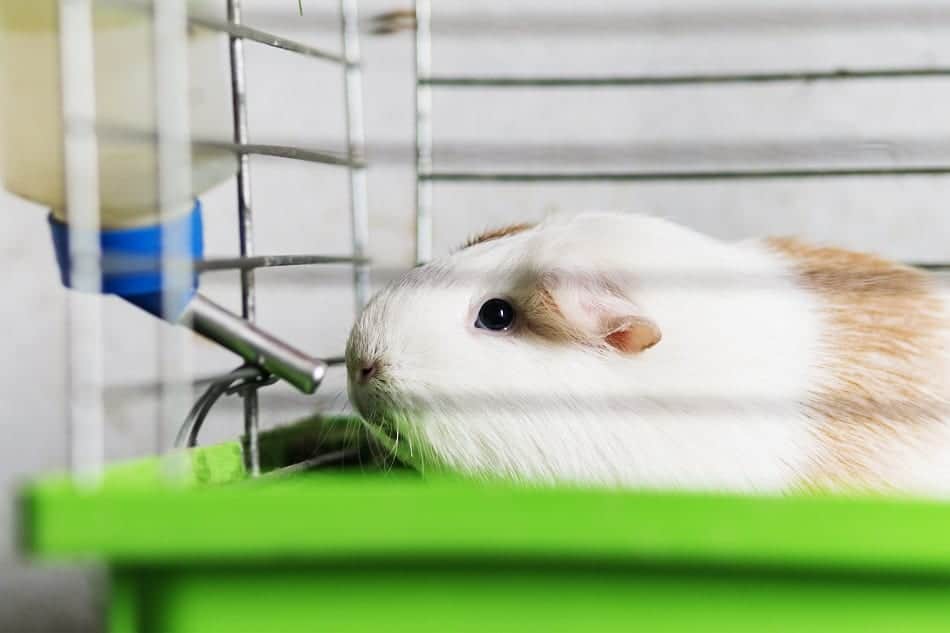
Glass Water Bottles: A Durable Option
Glass bottles are a robust alternative to plastic bottles. They are less prone to leaking and can be more durable over time. Glass bottles are also easier to clean and do not retain odors, ensuring your guinea pigs have access to fresh water.
When using a glass water bottle, ensure it is securely attached to the cage with a sturdy clip or holder. Regularly check the nozzle to ensure it is working properly and not clogged. Glass bottles can be a bit heavier, so make sure they are positioned safely to prevent accidents. Additionally, ensure the stand is stable to avoid tipping over or falling out, which can lead to dissatisfaction with the overall functionality of the product.
DIY Water Bottle Alternatives
For guinea pig owners who enjoy a hands-on approach, there are several DIY alternatives to traditional bottles. One simple option is to use a water bowl or dish, which can be placed in the cage and filled with fresh water daily. Heavy ceramic or stainless steel bowls are ideal to prevent tipping and spills. Another creative solution is to make a homemade water bottle using a plastic bottle and a few basic materials. This can be a cost-effective way to provide your guinea pig with fresh water. However, it’s crucial to ensure that any DIY water system is safe, stable, and easy for your guinea pig to use, to avoid any potential hazards.
Water Bowls vs. Water Bottles: Pros and Cons
Choosing between water bowls and water bottles for guinea pigs depends on various factors. Water bowls are easy to clean and refill, but they can be prone to contamination from bedding or food. On the other hand, water bottles keep the water cleaner but may require more maintenance to prevent leaks and ensure proper flow.
Consider your guinea pig's behavior and preferences when deciding. Some guinea pigs may prefer drinking from a bowl, while others might find a water bottle more convenient. Observing your pets and experimenting with both options can help you determine the best solution.
Tips for Transitioning to a New Water System
Transitioning to a new water system can be a bit challenging for guinea pigs, so it’s important to do it gradually. Here are some tips to help your guinea pig adjust to a new water system:
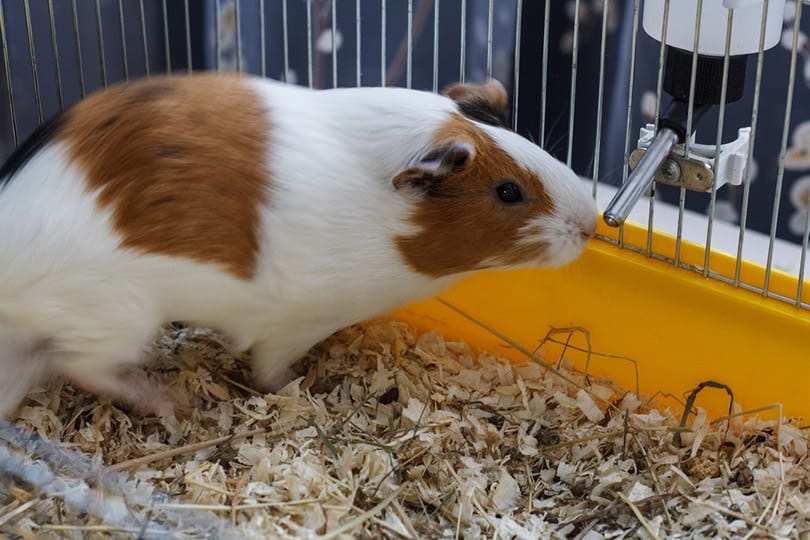
Introducing a New Water Source
When introducing a new water source, start by placing it next to the old water bottle or system. This allows your guinea pig to become familiar with the new setup and start drinking from it gradually. Observe your guinea pig’s behavior and once they are comfortable with the new system, you can remove the old one. This gradual transition helps reduce stress and ensures your guinea pig continues to drink water without interruption.
Ensuring Fresh Water: Maintenance Tips
Regardless of the hydration method you choose, maintaining clean and fresh water is crucial. Regularly cleaning water bowls, dispensers, or bottles helps prevent the buildup of bacteria and algae. Use a bottle brush to clean the inside of water bottles and dispensers thoroughly.
Additionally, check the water supply multiple times a day to ensure it is not empty or contaminated. Refill the water as needed and replace it entirely at least once a day. Monitoring your guinea pigs' water intake can also help you identify any potential health issues early on.
Addressing Common Issues: Leaks and Blockages
One common issue with water bottles for guinea pigs is leaking. Leaks can waste water and create a mess in the cage. To prevent leaks, ensure the bottle is securely attached and the nozzle is functioning correctly. If the bottle continues to leak, it may be time to replace it with a new one.
Blockages can also occur in water bottles and dispensers, preventing your guinea pigs from accessing water. Regularly check the nozzle or spout for any debris or buildup that could cause a blockage. Cleaning the nozzle with a small brush can help maintain proper water flow.
Choosing the Right Water Bottle: Factors to Consider
If you decide to stick with a water bottle for your guinea pigs, choosing the right one is essential. Look for a bottle with a sturdy construction and a reliable nozzle. BPA-free plastic or glass bottles are preferable to ensure the water remains clean and safe.
Consider the size of the bottle as well. A larger bottle may be more convenient as it requires less frequent refilling. However, ensure it fits securely in the cage and is easily accessible for your guinea pigs. Reading reviews and seeking recommendations from other guinea pig owners can also help you find the best water bottle for your pets.
No-Drip Water Bottles
No-drip water bottles are an excellent option for guinea pigs, as they prevent leaks and spills. When using a no-drip water bottle, make sure to follow the manufacturer’s instructions for installation and maintenance. It’s also essential to check the bottle frequently to ensure it’s working properly and not causing any air bubbles, which can prevent your guinea pig from drinking water. Regularly inspecting the bottle will help you catch any issues early and ensure your guinea pig always has access to fresh water.
The Role of Hydration in Guinea Pig Health
Proper hydration is vital for the overall health and well-being of guinea pigs. Dehydration can lead to serious health issues, including urinary tract problems and kidney stones. Ensuring your guinea pigs have access to clean, fresh water at all times is essential for their health.
In addition to providing water, offering fresh vegetables with high water content, such as cucumbers and lettuce, can help keep your guinea pigs hydrated. Monitoring their water intake and observing any changes in behavior can also help you identify potential health concerns early on.
Summary
Ensuring your guinea pigs have access to clean, fresh water is crucial for their health and well-being. While traditional water bottles are commonly used, alternatives such as water bowls and dispensers can be effective options. Regular maintenance and monitoring are essential to ensure your guinea pigs stay hydrated and healthy.
FAQ
What is the best water bottle for guinea pigs?
The best water bottle for guinea pigs is one that is durable, easy to clean, and has a reliable nozzle. Glass bottles or BPA-free plastic bottles are ideal choices. Reading reviews and seeking recommendations can help you find a high-quality water bottle.
How often should I clean my guinea pig's water bottle?
You should clean your guinea pig's water bottle at least once a week. Use a bottle brush to clean the inside thoroughly and ensure the nozzle is free of any debris. Regular cleaning helps prevent the buildup of bacteria and algae.
Can guinea pigs drink from a bowl instead of a bottle?
Yes, guinea pigs can drink from a bowl instead of a bottle. Heavy ceramic or stainless steel bowls are ideal to prevent tipping. Ensure the bowl is placed in a stable position within the cage and check it regularly to keep the water clean and fresh.
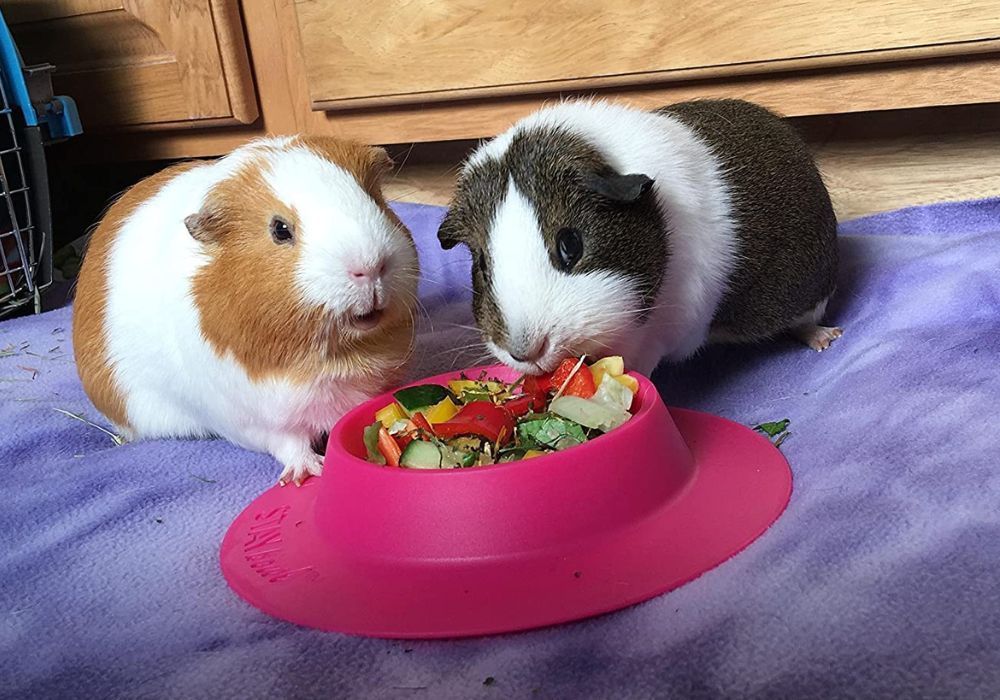
Summary
Hydration is a critical aspect of guinea pig care, and while the traditional water bottle is a common solution, it's not the only one. Exploring alternative methods such as water bowls, DIY dispensers, and incorporating water-rich foods into your pet's diet can contribute to their overall health and hydration. Remember to weigh the pros and cons of each option, monitor your pet's water intake, and maintain cleanliness to ensure the well-being of your guinea pig.
We have done all the research for you and put together our list of top 5 food and water bowls for giunea pig you can buy today! Tap the link below to see the list now! So go ahead! Your guinea pig will thank you later!

